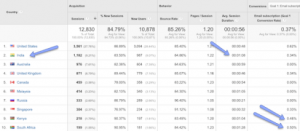
Whether you’re looking to begin or advance your accounting career, finding the right role can be daunting.
With an ever-changing professional landscape, it’s difficult to figure out just what prospective employers are looking for. Here are the three areas to focus on.
Ethics and professionalism
Working in finance, your actions have a large and lasting impact on the organisations you work with. This means you need to ensure the quality and consistency of your work through compliance with international accounting standards.
As well as this, you’ll need to follow some key principles for ethical practice. Applications and interviews may assess your attitude towards the following behaviours.
Confidentiality: Access to sensitive financial information means you should have a good understanding of what kinds of information need to be kept confidential, and of how to enforce this.
Objectivity: Remain impartial in your work, not allowing any biases to interfere with your professional judgement.
Professional competence: It can be tempting to accept work outside of your normal scope, but you should make sure you have the experience, knowledge and skills to complete any task to a high standard.
Professional conduct: You need to take responsibility for your actions outside of, as well as during, work; for example, think about how your social media posts could come across to stakeholders. On a more sober note, always report any activity you suspect to be breaking the law; while you might be concerned about causing trouble and putting your position at risk, not doing so could forfeit your whole career, and even result in criminal charges.
Integrity: Be open and honest with all stakeholders, even if this means admitting your own mistakes so that they can be properly addressed.
Qualifications at the right level
Unlike professions like medicine and teaching, there is no specific qualification route to becoming a professional accountant. Instead, you can take a variety of paths. Some qualifications, such as AAT, are split into levels that reflect your career progression.
For entry level positions such as assistant or apprentice roles, you will normally be expected to have gained a minimum of A*-C grades in GCSE Maths and English. Many employers will then support you to gain professional qualifications while in your role.
For data entry clerk roles, you will often require a low level accounting qualification like the AAT level 2 or IAB Bookkeeping.
If you have some previous accounting experience, and are looking to work on the production of basic financial statements, you should aim to achieve the AAT level 3. Alternatively, having an A Level in accounting offers sturdy foundations for the development of further knowledge and skills.
For budgeting and analysis work, which requires more advanced knowledge of accounting, you will usually be expected to have or be working towards your AAT level 4. If you’ve gone down the academic route, a degree in accounting, or accounting with business or finance, is also good preparation for this level of work.
The production of limited company accounts requires considerable experience, knowledge and skills, and this is where you are likely to need a qualification from the Chartered Institute of Management Accountants (CIMA), or the Association of Chartered Certified Accountants (ACCA). These qualifications prepare you to make strategic financial decisions that drive business performance.
Key competencies
Aside from having the right attitudes, behaviours and knowledge, prospective employers will normally assess these fundamental abilities.
Accounting software: Unless you’re at the very beginning of your accounting career, you will probably have gained some experience with digital accounting software. Many organisations use Sage, but experience with any software is a good start.
Microsoft Office: Most of us, accountants or not, can use an Excel spreadsheet. To ‘excel’ in accounting, though, you should be able to do more than basic data entry, with an understanding of features like pivot tables and IF statements. You should also be comfortable using a range of other Microsoft Office packages, including Word, PowerPoint and Outlook.
Analysis: Accountants don’t need to be mathematicians; armed with calculators, they don’t even need to be exceptional at arithmetic. Your strengths should lie in being able to judge whether figures appear to be correct at a glance, with the ability to spot anomalies. You should also be able to demonstrate that you can scrutinise financial data to generate valuable insights.
Communication: Prospective employers will want you to be able to tailor your communications to a variety of stakeholders. While you might be able to discuss amortization and reconciliation with an accounting colleague, you’ll need to tone down the jargon with clients, or those from other parts of the business.
Commercial awareness: Accounting isn’t about viewing the numbers in isolation; it’s crucial you understand them within the context of the business as a whole. Your work is impacted by everything from external regulatory changes to the decisions taken by the marketing department.
AAT qualified accounting tutor Patricia Barlow will be giving further advice on impressing prospective accounting employers in her next webinar. Find out more and sign up here.
Business & Finance Articles on Business 2 Community(72)
Report Post





